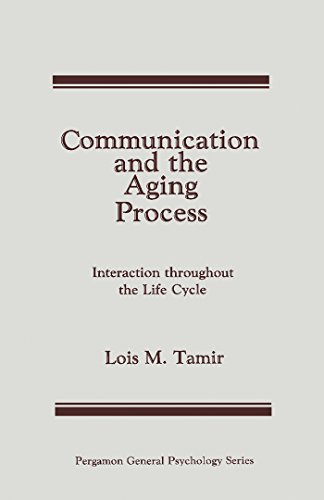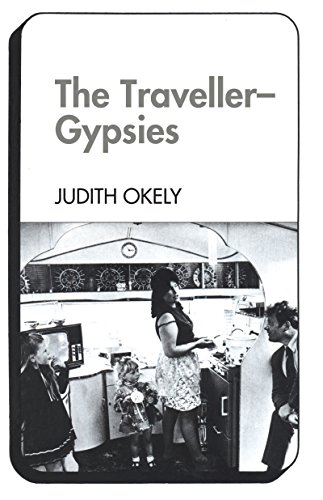
By Lois M. Tamir
ISBN-10: 0080246214
ISBN-13: 9780080246215
ISBN-10: 1483120937
ISBN-13: 9781483120935
The manuscript first bargains details on improvement during the lifestyles cycle, in addition to types of improvement, obstacle and alter, and technique. The textual content then discusses communicative interplay and origins of communique, together with interpersonal cognition, social interplay, caretaker-child interplay, communique among young ones, and language improvement.
The publication surveys formative years and maturity, mental features of the elderly, and social global of the elderly. character and morale, retirement and widowhood, attitudes towards the elderly, and norms and principles are mentioned. The manuscript additionally takes a glance on the social networks of the elderly and communicative interplay and the elderly. issues comprise relations, buddies, buddies, misperceptions among generations, and suggestion technique and verbal exchange.
The textual content is an important resource of knowledge for readers drawn to the learn of existence cycle.
Read or Download Communication and the Aging Process: Interaction Throughout the Life Cycle (Pergamon general psychology series ; v. 86) PDF
Best anthropology books
Among 1914 and 1918, German anthropologists carried out their paintings in the middle of full-scale conflict. The self-discipline was once fairly new in German academia whilst global conflict I broke out, and, as Andrew D. Evans finds during this illuminating publication, its improvement was once profoundly altered through the clash. because the struggle formed the institutional, ideological, and actual setting for anthropological paintings, the self-discipline became its again on its liberal roots and have become a nationalist activity basically serious about medical reviews of race.
Edward Said's Orientalism: A Reflection by Cornelia Trefflich PDF
Seminar paper from the yr 2007 within the topic Cultural reports - Miscellaneous, grade: 1,3, college of Leipzig (Institut für Kulturwissenschaften), direction: Decolonization, language: English, summary: Edward acknowledged is among the most useful and criticised students of our occasions. Being an exiled Palestian and American highbrow in a single individual triggered him to query a couple of typically accredited, yet biased techniques in regards to the global invented and built by means of the politically more suitable powers.
Download PDF by Judith Okely: The Traveller-Gypsies (Changing Culture Series)
During this publication Judith Okely demanding situations renowned debts of Gypsies which recommend that they have been as soon as remoted groups, having fun with an self sustaining tradition and financial system now mostly eroded by way of the techniques of industrialisation and western capitalism. Dr Okely attracts on her personal wide fieldwork and on modern files.
Colin Crouch's The Knowledge Corrupters: Hidden Consequences of the PDF
In precept the complicated, market-driven international within which we now stay is fuelled by way of wisdom, info and transparency, yet in perform the methods that produce this global systematically corrupt and denigrate wisdom: this can be the robust and provocative argument complex through Colin Crouch in his newest exploration of societies at the highway to post-democracy.
- Private Governance: Creating Order in Economic and Social Life
- Safer Sex in the City: The Experience and Management of Street Prostitution (Psychology, Crime and Law)
- Mortal Dilemmas: The Troubled Landscape of Death in America
- Contemporary Patterns of Politics, Praxis, and Culture: 10 (National Political Science Review)
- Cauca's Indigenous Movement in Southwestern Colombia: Land, Violence, and Ethnic Identity (The Peoples of "Latin" America and the Caribbean)
- God's Laboratory: Assisted Reproduction in the Andes
Extra resources for Communication and the Aging Process: Interaction Throughout the Life Cycle (Pergamon general psychology series ; v. 86)
Sample text
Communication and the Aging Process: Interaction Throughout the Life Cycle (Pergamon general psychology series ; v. 86) by Lois M. Tamir
by Brian
4.5



